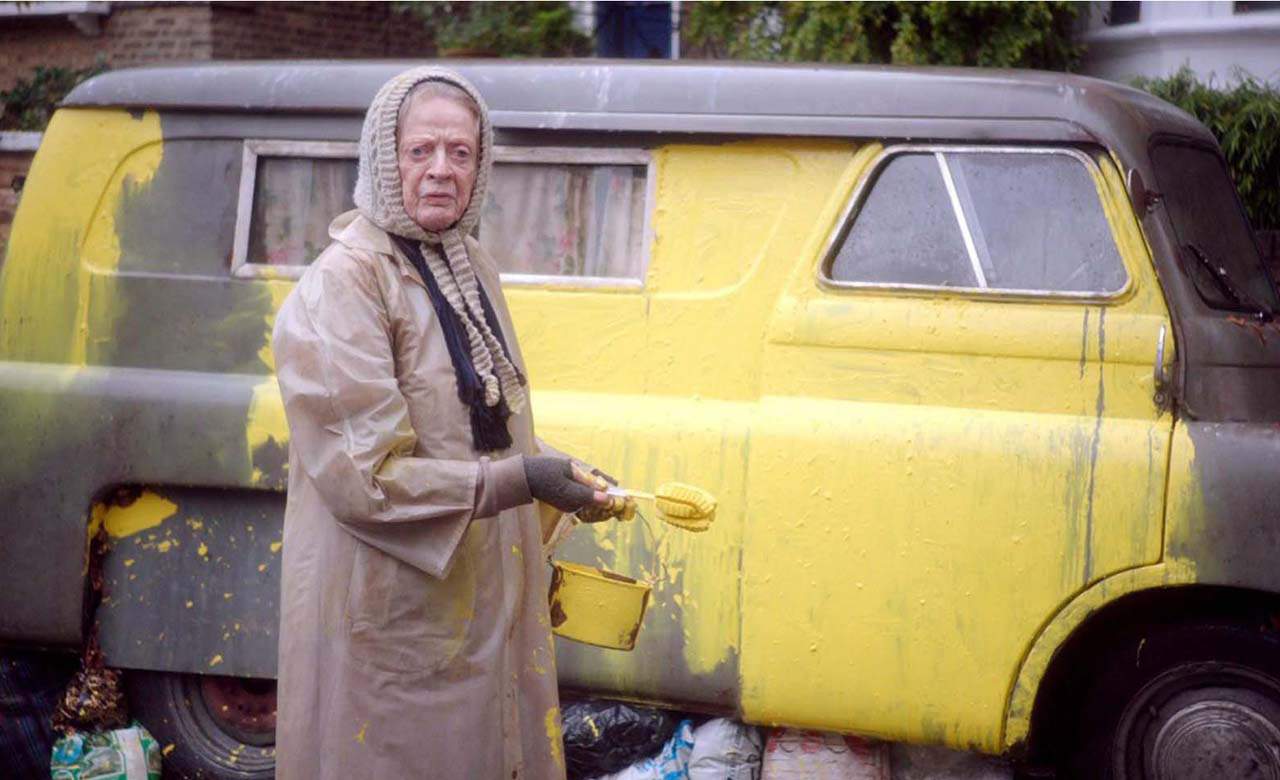The Lady in the Van
Maggie Smith gives another fantastic performance in this enjoyable stage adaptation.
Overview
It all started with a purchase and a push. In the early 1970s, playwright Alan Bennett (Alex Jennings) bought a house in London's Camden Town, and helped the elderly Miss Shepherd (Maggie Smith) move her broken-down vehicle. She was far from the area's favourite inhabitant, with few others willing to offer such assistance, but little could he know what his one act of kindness would bring. Shepherd wouldn't just stay in the suburb for nearly two decades: she'd park the van she lived in in Bennett's driveway.
The story of The Lady in the Van might sound like the type of tale that could only be cooked up by a couple of screenwriters, but Nicholas Hytner's film is based on the real-life Bennett's actual experiences. Well, mostly. The movie version of the award-winning theatre production of the same name has fun with the concept of art capturing life, throwing an extra Bennett — a duplicate to do his writing, while he lives his life — into the mix. Other winking meta-textual nods to Bennett himself, and to Bennett and Hytner's previous stage-to-screen effort, The History Boys, also feature.
Accordingly, both Bennetts peer out their window as the eccentric, cantankerous Shepherd yells at recorder-playing children, repeatedly paints her various cars a very distinctive shade of yellow, and generally shakes up the otherwise quiet and friendly neighbourhood over the years. Always complaining about her many illnesses but refusing any help, she's a force to be reckoned with, as well as a woman with a backstory spanning ambulance driving, time in a nunnery, a musical past and a brush with the law. As her unlikely friendship with Bennett blossoms, she's also the film's most convincing element.
While Bennett has clearly worked with the material before, and Hytner directed the initial stage version, Smith's interpretation of Shepherd is the main attraction. In fact, the English actress is another Lady in the Van veteran, receiving an Olivier Award nomination for playing the role in the original 1999 theatrical production, and also resuming the part in the 2009 radio adaptation. Like the charming acting treasure she is, she ensures Shepherd is more than just a victim of sympathy or mockery — or a means for changing Bennett's perspective of the world. For an actress with so many iconic performances to her name, including Harry Potter and Downton Abbey in recent years, it's a testament to her efforts that this ranks among her most memorable on-screen work.
Smith's prominence does highlight the feature's struggles in other areas, though. TV-style images give the movie a standard, almost bland look, while too-timid pacing makes it seem much longer than its 104-minute running time. That the film began its life as a play is obvious. Never the less, the film's quirky story and Smith's compelling performance more than make up for any minor issues.





